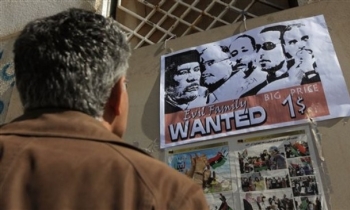Newspapers themselves have been grabbing the headlines in past weeks, as the country's largest media houses race to unveil dailies.
Since Icelandic investment firm Dagsbrún announced its plans in the spring to release its free daily newspaper Nyhedsavisen, the ground has been shifting under the media landscape. The media house responsible for Jyllands-Posten and Politiken daily newspapers followed suit in May.
In a surprise move, however, media house Berlingkse Officin cut queue last Wednesday with its freesheet, Dato, outmanoeuvring the two others.
Berlingske Officin said it hoped its paper appealed to busy families who do not subscribe to a newspaper.
'We think the modern Dane has the need for a quick overview in the busy morning hours - an overview that prepares the family for the day,' said Lasse Bolander, the newly named head of Berlingske Officin.
Crowded house
The appearance of Dato increases competition in an already crowded market. The JP/Politiken media house followed Dato's lead with their 24timer newspaper on Thursday and Dagbrún's Nyhedsavisen will soon follow.
Another free daily, Centrum Aften, began distribution in northern Jutland earlier last week.
Earlier this week, free daily metroXpress also began distributing an afternoon edition, bringing the total of free dailies to seven, including the existing two free dailies, the morning edition of metroXpress and Urban.
Wanted: New Investors
The risk of creating free daily newspapers was underscored last week when Dagsbrún announced more investors were needed - before a single issue of its Nyhedsavisen reached readers.
The Icelandic investment firm's critical cash flow problems have forced it to seek a helping hand from other investors. The company announced last Thursday that it would only spend DKK 50 million (EUR 6.6 million) on the project. Other risk-willing investors were welcome to join in, however.
The head of Dagsbrún, Gunnar Smári Egilsson, reassured employees, investors and competitors that there were sufficient funds to run Nyhedsavisen for three to five years.
'We have enough money to establish more Nyhedsavisens in other countries,' said Egilsson, who attributed Dagsbrún's financial woes to the falling value of the Icelandic kronur.
Svenn Dam, the CEO of Dagsbrún's 356 Media Scandinavia, which will publish Nyhedsavisen, dismissed suggestions that its parent company's DKK 150 million (EUR 20 million) deficit and growing debt threatened the newspaper's fate.
'That's the way it is with financial reports. Sometimes they are in the plus and other times they are in the minus,' Dam told daily newspaper Berlingske Tidende. 'The stockholders behind this project are sufficiently strong enough to handle this project.'
Final call
Financial analysts in Iceland contradicted Dam's optimism. They noted that Dagsbrún's financial problems were compounded by growing inflation in Iceland - eight percent at last count - and a falling kronur.
'The company already has major risks and they need to do something to reduce that risk,' Ólafur Ólafsson, a stock market analyst for Kaupthing Bank in Reykjavik said.
The Danish media houses that had taken up Dagsbrún's gauntlet and produced free dailies of their own were following the developments in Iceland closely.
Dagsbrún's initial investment was far too small, according to Lars Munch, the head of operations at JP/Politikens Hus, which released 24timer Thursday.
'DKK 50 million is nothing in this game. You need to use much, much more,' he said.
Advertisers echoed Munch's warning. They welcomed a seller's market, but expressed concern that the rush to produce free dailies has left media houses in a bloodletting frenzy.
Claes Braagaard, a representative for media house OMD questioned the hasty decision by Berlingske Oficin to produce Dato: 'From an advertiser's point of view, you can basically rejoice over the increased competition on the newspaper market, but this doesn't seem serious at all.'
At least one of the newspapers would close before the end of the year, according to Henrik Jensen, head of media bureau Carat.
'There isn't room for all of them. I simply can't imagine that,' Jensen told financial daily Børsen. 'What we are now seeing is a test of strength, and when it's over, we'll see a completely new constellation.'









